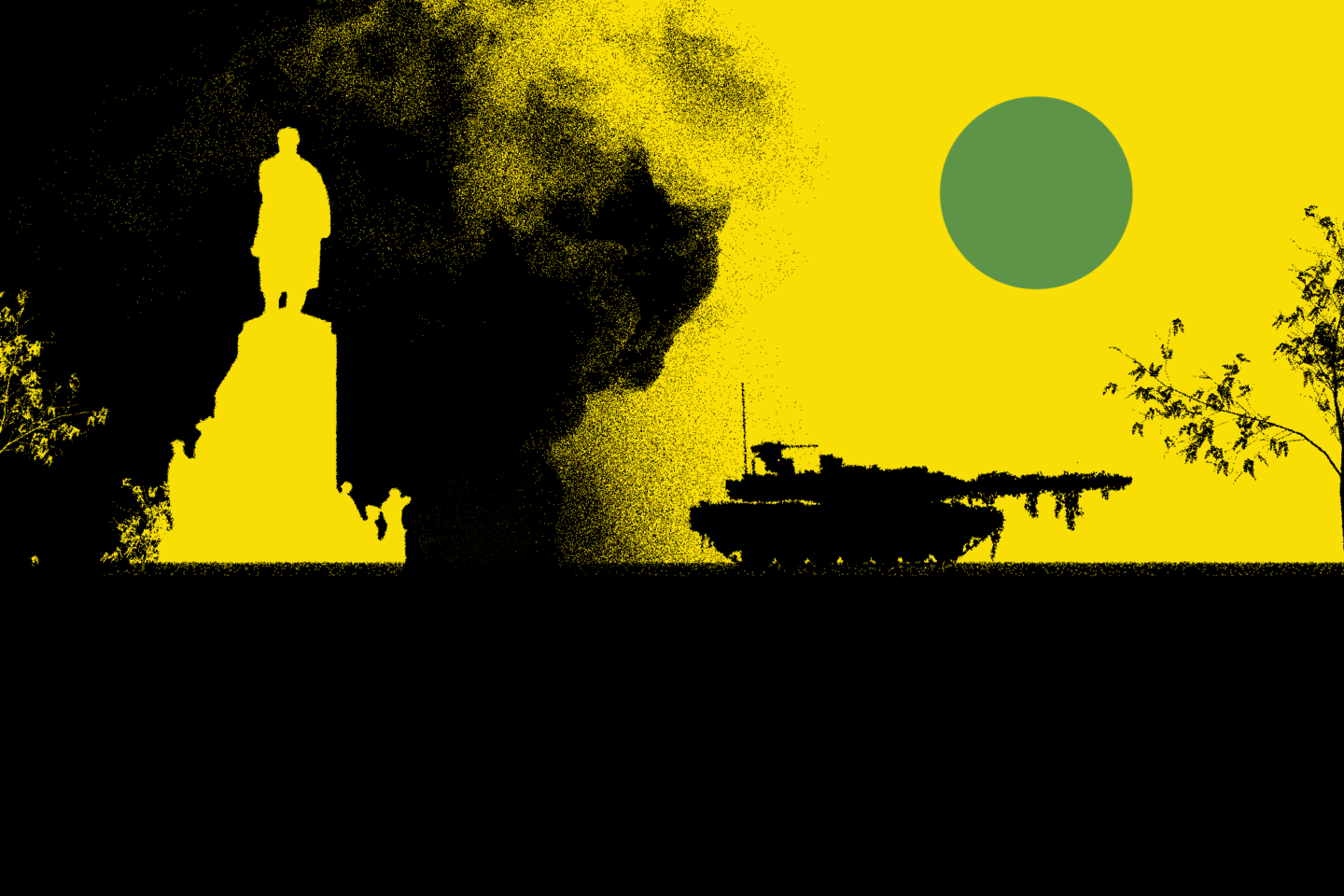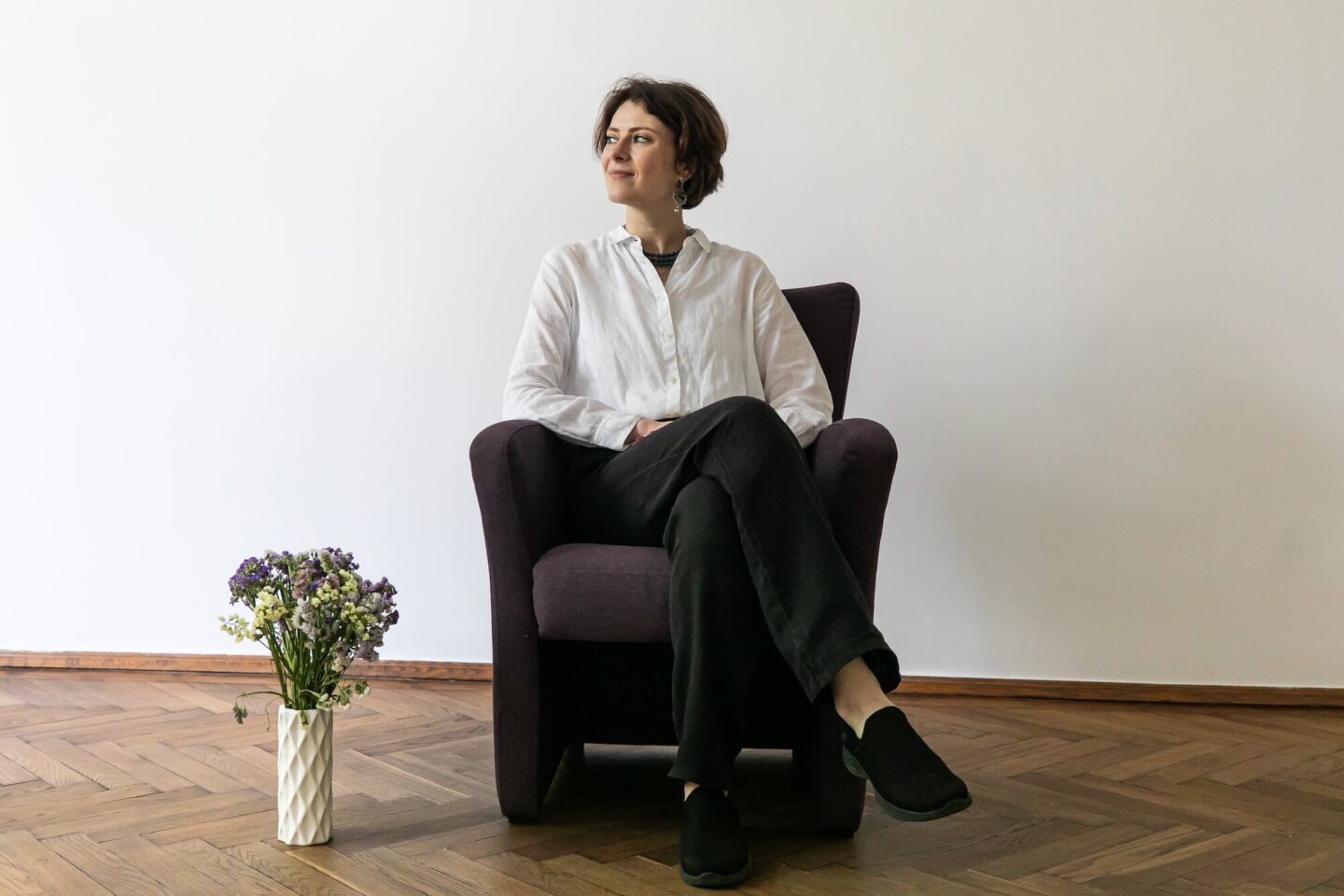Poet and translator Iryna Shuvalova emphasizes the importance of preserving the individual stories of this war. This theme isn’t new for the writer, whose texts often serve as poetic explorations of identity and the significance of microstory. She has been engaging with these themes for over a decade, starting from her debut book Ran (2011), which earned her the first prize in the “Smoloskyp” publishing contest, to her 2020 collection stoneorchardwoods that was named the poetry book of the year by Litakcent and received a special award from the Lviv UNESCO City of Literature Prize.
However, the focus intensified after Russia’s full-scale invasion. As a researcher, Iryna Shuvalova defended her dissertation at Cambridge on the topic Voices of War in Donbas: Identities in War-Affected Communities through the Lens of Popular Songs. She has studied and worked in the US, UK, China, and Ukraine, and currently teaches at the University of Oslo in Norway. She combines her research work with creative writing, frequently speaking to international audiences in both professional roles. Her English-language poetry collection Pray to the Empty Wells translated by Olena Jennings, was described by The Guardian as offering “a way to understand what it means to be Ukrainian at a catastrophic moment for the poet’s country.”
We speak with Iryna about the untold stories of war, personal space, and how Ukraine is perceived in Norway. We also discuss Shuvalova’s new book End Songs (Vydavnytstvo Staroho Leva, 2024) and the mental maps in which we exist and navigate.
What does it mean to teach Ukrainian studies in Oslo right now?
Teaching is a quarter of my work at the university, while the other three-quarters are dedicated to research. I co-teach because the system here is slightly different from, say, the American system, where a professor usually has their own course and leads it independently. In Norway, co-teaching among several people on a single course is common, with responsibilities divided based on the expertise and interests of the lecturers.
What exactly are you currently teaching?
Oh, I always respond to this question with “all things Ukraine.” It’s true because, firstly, I co-teach a language course called “Ukrainian for Slavists.” Then, there’s the course “Ukraine, Belarus, Moldova: Politics, History, Culture,” where I cover all the Ukrainian and Belarus components from the 19th century onward. Additionally, this year, there is also an added Ukrainian component for me in courses on Eastern and Central European literature and cinema.
Unfortunately, we do not have a Ukrainian specialization—we don’t graduate specialists in Ukrainian studies. However, at the Institute of European Languages, Literature, and Regional Studies, where I work, there is a Slavic studies section. Our focus is on Eastern and Central Europe, and of course, Russia. Russia hasn’t gone anywhere.
Ideally, I would like to see a specialization in Ukraine, but for now, I really appreciate the approach in which Ukraine is studied not as a strange case (a footnote in history) but as an intrinsic part of a complex and dynamic region.
This region, in turn, is viewed not as an addition to Russia and not as a territory which fate is still defined by the legacy of several empires, but as part of the world with its own trends and a multitude of diverse identities.
How do you perceive the understanding of Ukraine in Norway?
People know very little but want to learn more. At the same time, the tone of conversations about Ukraine sharply contrasts with how these discussions occur elsewhere in Europe. For example, in England, where I attended the British Association for Slavonic and East European Studies (BASEES) conference this year—one of the largest European Slavonic conferences.
What specifically was different?
In England, discussions about Ukraine are heavily influenced by a post-imperial perspective—almost a peculiar form of co-imperial nostalgia—especially from some older colleagues. During debates and discussions, we often found ourselves almost forcing such individuals out of their ivory towers. The significant distance separating the English from the zone of Russian aggression plays a role as well. From what I’ve learned from colleagues working in governmental and advisory structures, military circles have a solid understanding of the real potential threat from Russia, but unfortunately, at the academic level and within the political environment, this understanding is lacking.
However, the situation in Norway is different. For instance, Norwegians are geographically very close to Russia, with a neighboring two-hundred-kilometer border between the Murmansk region and Norway’s northern Finnmark region. Relying on beneficial economic cooperation, Norwegians have built relationships with Russia for decades and taught the Russian language in schools. Whilst suddenly, Norway, which deeply cares about the welfare of its population, realizes it borders an aggressor country that has unleashed a bloody war in Europe. For Norwegians, this is not an abstract issue. People have understood that what seemed to them an advantage, such as knowledge of the Russian language and culture, can undermine their security and welfare. There have been loud scandals, such as when a university hired someone who was documented as Brazilian but turned out to be a Russian spy. At our university, there are regular briefings from the security service for colleagues working with countries like Russia and China.
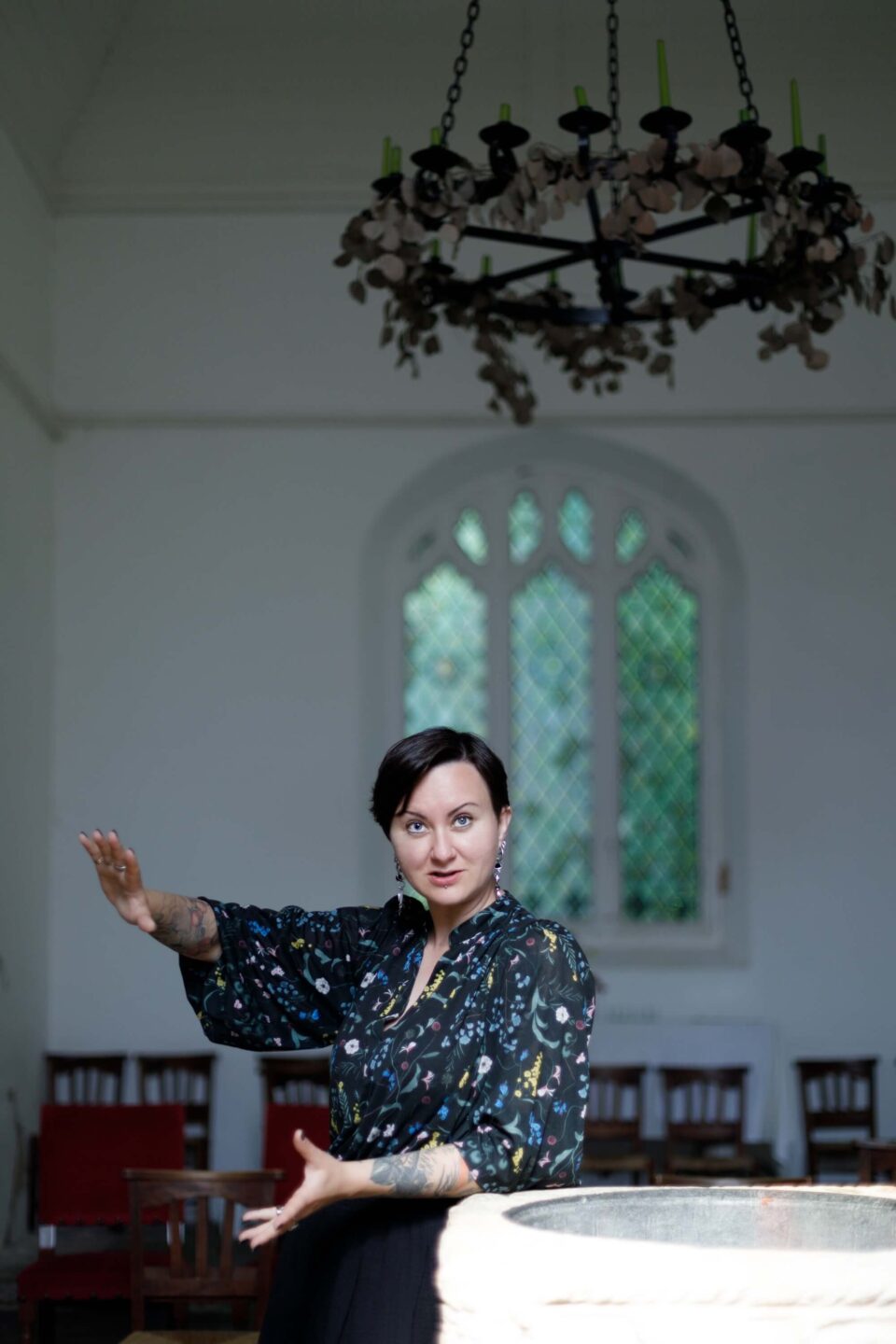
Which matters have you discussed?
How to avoid disclosing information, how not to find yourself in a situation where you have to provide data to Russian intelligence under pressure. Practical matters.
How do you think the understanding of the Ukrainian situation in Norway is shaped?
On one hand, Norway itself was in a de facto colonized (at least, dependent) state for centuries—first in its relationship with Denmark and briefly with Sweden. This significantly alters the tone of the conversation. Furthermore, until recently (prior to the oil boom), Norway was very poor and had minimal influence in the region. This also affects how discussions about Ukraine are conducted. Norwegians understand what it means to be a “small” state in a situation where a “big” state holds a grudge against you or wants to take advantage of you.
How well Norwegians understand Ukraine through the lens of colonial theory?
I wouldn’t say that a post-colonial perspective is a popular approach in Norway (especially since Norwegians themselves have been colonizers in relation to the Sámi—an indigenous group living in the northern part of the country), but I’m referring more to a framework of thinking and the historical situation. In the case of Norway, we essentially need to conduct an educational campaign: spreading accurate information about Ukraine and making it accessible. Norwegians are on our side: they see us as a sovereign country facing an unprovoked, unjustified attack. It’s also important to keep Ukraine in the spotlight, especially as attention has significantly shifted to the war in the Middle East.
Meanwhile, a post-colonial perspective is extremely important for us. It should be an integral part of teaching Ukrainian history in Ukrainian schools. This framework of understanding serves as a tool that can help us better comprehend ourselves and, as a result, communicate more effectively about ourselves to the world.
What do you think is important to share about Ukraine right now—with cultural figures and educators?
Right now, people around the world are, in essence, pained by an imagined Ukraine about which they know very little beyond some general stereotypes. Grandfathers in Texas are writing anti-war poems about sunflowers. It is important that, now that the information wave has subsided, we continue systematic work that can be called the specification of “dotted” Ukraine, filling the Ukrainian space on the map and in people’s understanding with specific content.
This space should be associated with more than just the war, which risks disappearing from news headlines. We need to break the trend where many still perceive Russia through its “great culture,” while seeing Ukraine merely through sunflowers and the victims of Russian aggression. Images of victims can easily be replaced by images of other victims, for instance, from Gaza or Sudan. Unfortunately, there are many places in the world where people suffer, including from postcolonial wars. We are not alone in this. Therefore, Ukraine must transform into a specific, expressive, recognizable symbolic landscape in people’s minds—ideally, a landscape that means something to them on a personal level.
We, for example, love certain languages, certain literatures. For me, Greece is the poetry of Odysseas Elytis, England is Ted Hughes or Alice Oswald. Ukraine should resonate with a specifically filled cultural and historical space, where people can find poetry, for instance, from Vasyl Stus.
Tell us a bit about your students. Who are your students and where do they come from?
My university courses attract a diverse group of students. Many are interested in international relations or intercultural interaction, with aspirations to work in government or private sectors. Others focus on languages, literature, or aim to pursue academic careers. Our Ukrainian for Slavists course enrolls up to 50 participants each year, which is a strong indicator of interest in Ukrainian language education globally. This course is open to individuals beyond the university’s student body, including diplomats, publishers, editors, and professors from other institutions.
Among my students, there are also Russian studies scholars who are learning Ukrainian. I see this as an extremely important trend. It’s crucial for us that Russian studies should include individuals who deeply understand Russia’s crimes and imperial perspective and can deconstruct them. This is a source of our pain, but no matter how much we imagine that Russia will vanish from intellectual maps, taking numerous Russian studies departments with it, that won’t happen. Therefore, our allies are those specialists in Russian studies who will be knowledgeable about Ukraine and can incorporate a Ukrainian perspective into their teaching about Russia. Moreover, this will help counter the unpleasant global trend where, in many countries, due to a lack of experts in Ukrainian studies (or reluctance to seek them), Russianists often serve as invited experts discussing Ukraine. Often, these are individuals who, at best, have read a few professional publications about the Ukrainian context. Russia has explained Ukraine to the world enough. Now it’s time for us to take the initiative and explain the world not only ourselves but also Russia.
In February 2022, we talked about the boycott of Russian culture, which transitioned into calls for canceling it. How do you see this approach today, and what is effective when working with foreigners?
Focusing conversations on oneself doesn’t work. Let me share my own example. At New York University, there is the Jordan Center for Russian Studies. The Slavic studies at this university are all, in one way or another, tied to the Jordan Center. In general, most Slavic studies in the US initially took shape and existed under the auspices of Russian studies, and, unfortunately, this label still hangs almost everywhere. I visited the Jordan Center at the invitation of Olena Martyniuk, a wonderful Ukrainian-American researcher and Ukrainian studies expert, who teaches numerous courses on Ukrainian culture at New York University. We had an open event where we discussed important things about the war in Ukraine. However, afterwards, I received comments from people saying that I shouldn’t have spoken at the Jordan Center because the name of this institution includes the phrase “Russian Studies.”
Do I like that this label hangs over the platform where I speak? Absolutely not. But who benefited from my presence on this platform and the things I voiced there? Certainly not Russia. On the contrary, it is the absence of Ukrainian voices in the public space that most plays into Russia’s hands.
Let’s imagine that we leave all non-anti-Ukrainian platforms where the word “Russian” is in the name. Who remains there? Russians. Often with distinctly pro-Russian messages. This is exactly what Z-Russia wants: for Ukrainians to be silent, not to speak out, not to teach their courses, not to promote the Ukrainian perspective on the situation in the region and the world. They don’t want their voices to be heard.
By withdrawing, we will end up talking only to ourselves. This will be a space filled with our echoes.
But unfortunately, the optics of exclusion does not stop working here either—because when we are armed with it, even among our chosen and trusted circle, we will continue to seek out those who do not quite fit into this circle, who do not deserve to be part of the conversation. In certain contexts, we may find ourselves in a situation where an individual speaks only to themselves, hearing only their own voice and paying attention solely to themselves. This way, fruitful conversation cannot occur, neither within Ukrainian society nor in discussions directed beyond Ukraine.
Moreover, if we adhere to such a strategy, people will simply stop listening to us. We often speak in categories that are not understood by those in other contexts, and at the same time, we refuse to explain these categories—furthermore, we take offense when others are not familiar with them. Sometimes, we speak to others as if they owe us something. Meanwhile, there are people who empathize with us, who understand the catastrophic scale of what is happening in Ukraine—and we should not demand more from them or blame them for their ignorance, but truly think about how to explain ourselves and the specifics of our context, as much as possible, as much as we are able.
At the same time, of course, it is normal and natural that this capacity is often lacking, and that in many situations, the first impulse is to be guided by the logic of pain—after all, each person is caught in their own pain. I fully realize that I am speaking from a position of privilege: I am in physical safety, and so are my daughter and mother, although my brother and the father of my child are fighting. But I am talking to you from a safe professional trip, and there won’t be an air raid alarm starting behind me.
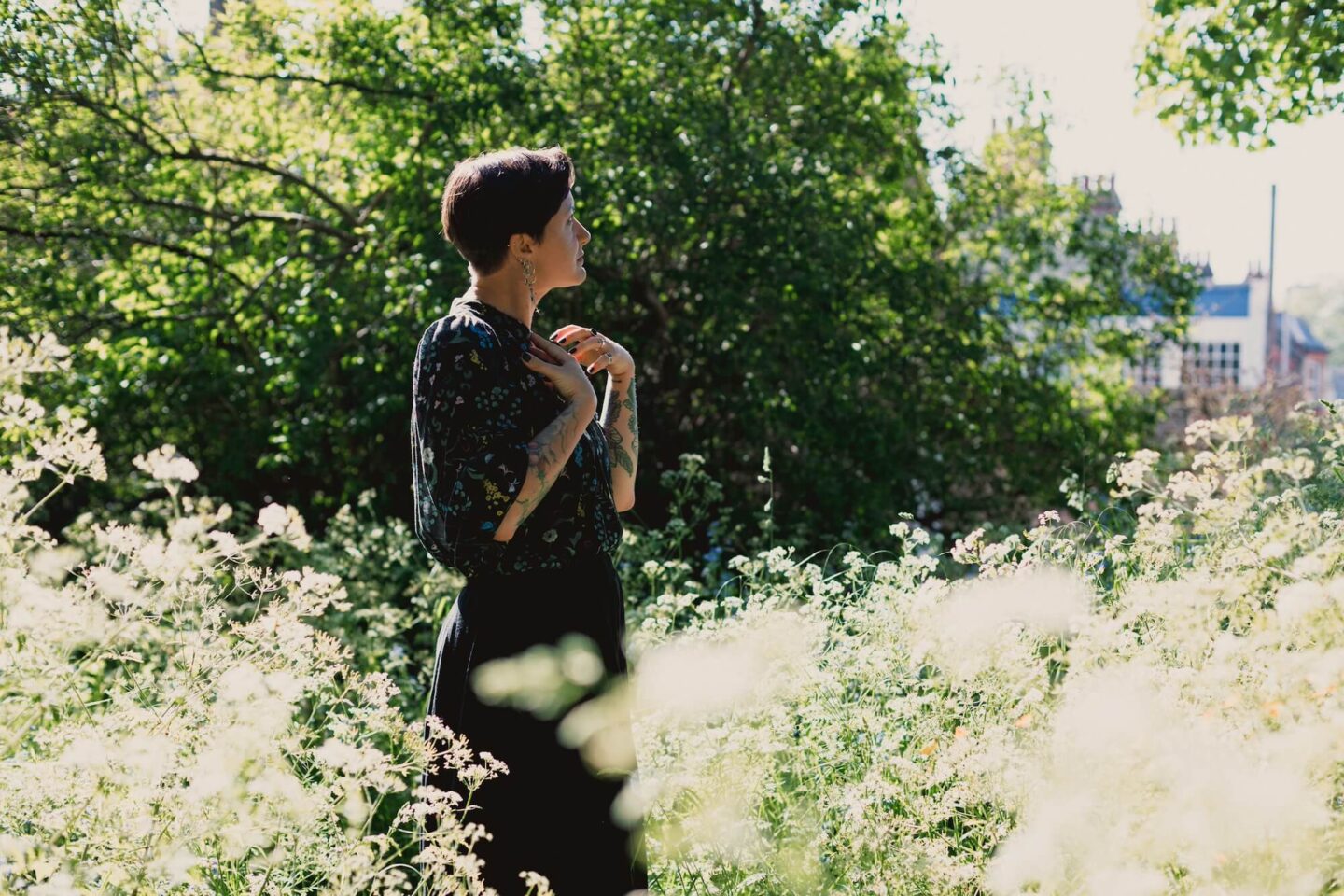
Ira, isn’t this the value? Right now, we are discussing your position, which is not the most extreme, but it is still the position of a person during a war that has been waged against their country. This is an experience through which you can speak honestly.
I outline these things because I understand that my perspective of being in a place of pain is different: distinct from the multitude of places of pain that are now all too familiar to Ukrainians inside the country, who are in far more threatened situations than mine. It is very important to be aware of and recognize this difference in Ukrainian contexts today, but it should not lead to the devaluation of different experiences of pain and different experiences of war.
I repeat, our own pain is always the strongest, to the point of blindness; that’s why we sometimes forget that people in other countries, in other contexts, also suffer greatly. And these people potentially have the same right to the attention and help of the global community as we do. We should remember this for practical reasons because if we say that we Ukrainians deserve the attention and assistance of the global community just because we are in pain, then people from Sudan, Palestine, and many other places can come under the same principles, unfortunately… And on the scale of human suffering, these are almost equivalent issues. There is a group of people who are suffering greatly and need help.
Meanwhile, it is extremely important for our interests that our perspective does not get lost in a sea of pain. We won’t achieve this just by reminding others that we are Ukrainians or that we are still suffering. For this, we need a constant, expressive presence in the conversation space, more detailed, memorable stories that create both emotional and rational connections—connections that can eventually transform into alliances.
How can we build more detailed stories about ourselves? It seems to me that we constantly lack comparative studies, the opportunity to place ourselves in a broader context.
For a long time, the power of cultural diplomacy has been underestimated (and seems to still be). Meanwhile, culture is the space where foreigners can create lasting personal connections with Ukraine—a space where specific positive associations with Ukrainian identity can be formed beyond the image of a generalized space of suffering.
Of course, we see an increase in knowledge about Ukraine one way or another—and, unfortunately, it’s largely due to Russian aggression. In 2001, I first went to the US, a girl from a poor family who was selected for an international student exchange program. I lived with a wonderful American family, with whom I still keep in touch. So, my kind and sweet “host father” would always say, introducing me to friends or acquaintances: “And this is our Russian “daughter.” And my “host mother” would always have to nudge him in the ribs to correct him.
For the second time, I went to the US for a master’s program in 2014. That March, during the annexation of Crimea, Ukraine was in all the news. Despite the horror of the situation, I remember being struck by this pervasive media presence—especially in contrast to 2001, because at least Ukraine was no longer lumped together with bears and balalaikas.
Compared to 2014, and especially to 2001, many people now have a much clearer understanding of the context in which Ukrainians live. I’m speaking primarily from my experiences in the US and the UK, but this trend of gradual (though insufficient) increase in awareness is generally present for most of the so-called “West.”
I’m coming back to the tools we can use to build these connections. It’s clear that Russia has employed significant resources for this and continues to do so. What do you think our path should be now?
Changing the perception of Ukraine takes time. Time works in our favor in the realm of intellectual discussions, although in some ways it is against us on the battlefield. In the context of the necessary shifts in the perception of Ukraine in the world, we need to spend this time not just waiting for changes, but actively implementing them, particularly at the institutional level. Yes, Ukrainian studies may never grow to the scale of, for example, Anglophone literature studies. But they should become a well-developed field of research, integrated into conversations across various fields of knowledge.
So that one can confidently attend a general conference on early 20th-century literature with a presentation about Kobylianska, and the audience would say: “Ah, yes, Ukrainian proto feminist—we’ve heard about that.”
It’s extremely important to amplify the voices that can currently speak about Ukraine beyond its borders. In fact, we still don’t have that many people who are capable of effectively conveying important Ukrainian messages in various cultural and geopolitical contexts, particularly at the conceptual and theoretical levels. This is especially noticeable in the context of advocacy for Ukraine in the so-called “Global South.” This is also an area for further development.
Meanwhile, the war inevitably dominates the discourse. Recently, I spoke in Venice, where an audience member asked, “What was your literature like before the war, what did you write about?” We need to work on filling these gaps as well. After all, the partial (or, in some cases, complete) impossibility of discussing Ukrainian space beyond the war is yet another devastating aspect of the conflict. It takes away time, effort, and voices from areas that are also important to us and still not fully addressed.
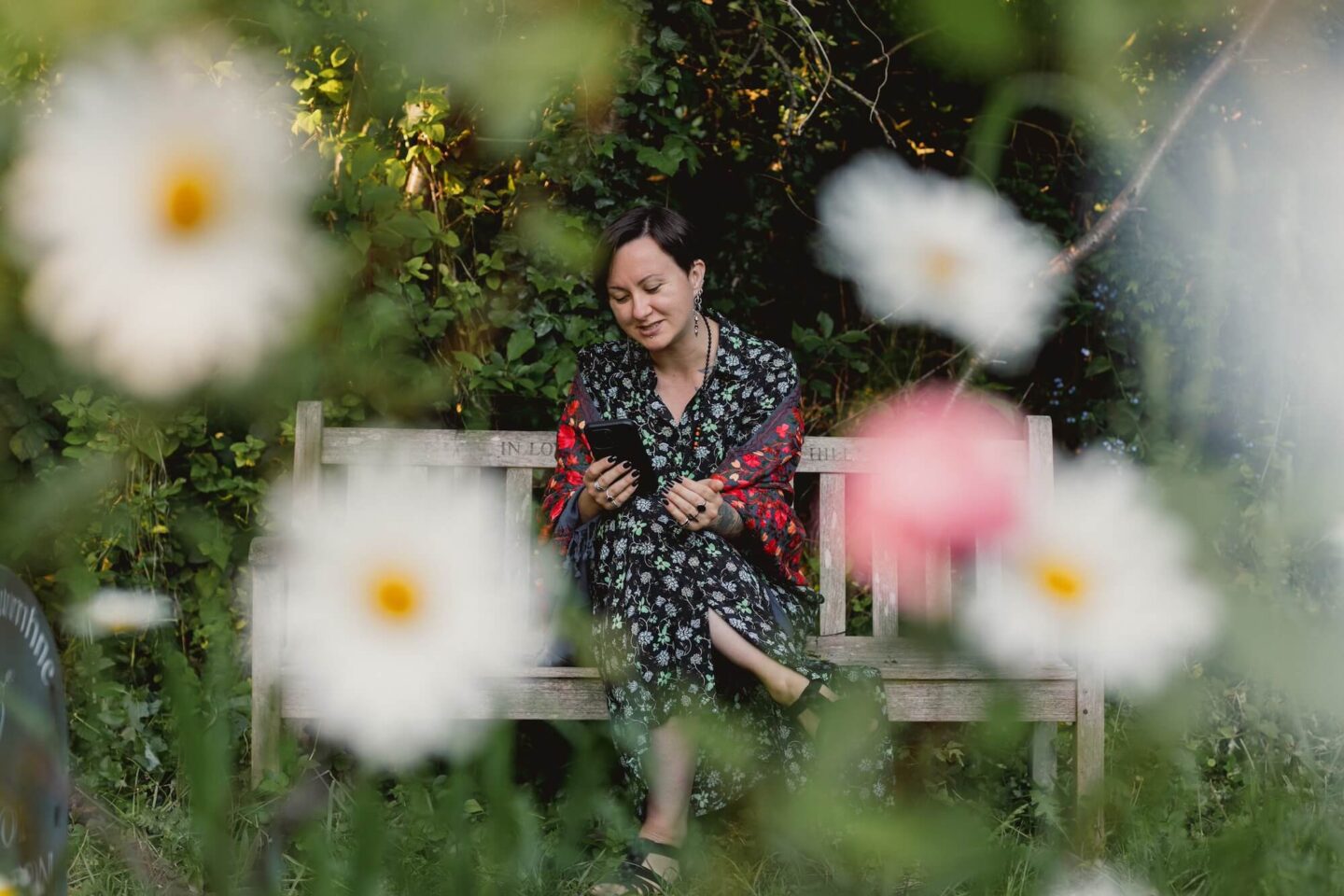
In your new book End Songs there are poems written both before and after the invasion. Was it difficult for you to maintain a private space, a personal perspective on things and phenomena after the full-scale invasion?
For me, in the writings of others, the private (“small,” “insignificant,” “worthless”) experiences and individual voices have always been very valuable—often voices on the margins of history and society. Perhaps, for this reason, it has always been most natural for me to speak and write in my own, unmasked voice—looking through the small, not perfectly transparent lens of my life (even when I tell stories that are not my own). Rather, the opposite: I don’t feel very comfortable speaking on behalf of others, on behalf of a community—I always think: who am I to speak for them, to take on their identity? This is probably my Achilles’ heel as a poet.
But writing about the war in the context of the private and from the private space has never seemed inappropriate to me. War is, in fact, always a very personal matter that happens to a specific person. It’s just that there are, unfortunately, so many of these individual people and these private pains that, in the context of war, it is difficult (or simply impossible) to grasp and comprehend them without generalization.
One of the challenges of both communicating about the war and memorializing it is the need to convey both the communal and private, individual dimensions of war or genocide. It reminds me of the Holocaust Memorial in Budapest, where 60 pairs of bronze shoes line the embankment as if just taken off by people; each pair represents a lost life, and each is part of a collective tragedy.
The less we are able to share with others (and we have already talked about this narrowing circle of communal trust), the more we find ourselves locked in our privacy. However, this space can further diminish. War is capable of depriving us of even the space for self-conversation: when we tell ourselves—we cannot think like this, we do not have the right to feel this. Yet, if we stop talking about something with ourselves, this conversation will never happen publicly either.
Have you ever censored yourself or, as you put it, stopped talking about something even with yourself?
Yes, of course. However, sometimes I stopped myself and still voiced things I was tempted to remain silent about. For example, I have a cycle of poems called Nation, and I hesitated until the last minute whether to include it in my new poetry collection. In this cycle, I reflect on the nation as a big (I even want to say “grand”) category, burdened with meanings and contexts of various socio-political projects, some of which I am not close to. Generally, I struggle with large categories because they always require generalizations, and these generalizations are mostly made under the conditions of those who constitute the majority within that category or who formulate it. For instance, when we talk about “nation,” we often forget about the diversity and specificity of the people who make it up, or those who are excluded from this category. In my cycle, I speak about finding it difficult to love a generalized “nation,” whereas I deeply and intensely—and much more organically for me—love and appreciate the diverse individuals who live in my country, its multifaceted culture nourished by various sources, its incredible, familiar and unknown landscapes. For me, poetry is a space of utmost honesty, so Nation ultimately had to be included in the collection. I wanted to be honest with others and with myself.
In your new book, there’s a lot of personal content, love lyrics, and constant introspection. Why is it important to you to talk about the personal?
In our public space, particularly on social media, sometimes opinions are voiced that some aspects of the private—joy from simple, small things, jokes, or unshadowed love—are not timely, not worth attention, or simply inappropriate right now. However, to resist this war means also resisting how it undermines and steals from each of us our right to normalcy, to everyday life—to joy. In my opinion, all this becomes especially valuable, poignant amidst the war.
Notice how our enemy, in its rhetoric, dehumanizes the war, stripping it of all the smaller, human elements as if they were insignificant. This is a typical strategy of a totalitarian aggressor country, which operates with categories like “the great Russian people,” “the courage of the defenders of the fatherland,” “victory over the fascists.” When you start to break these things down, everything falls apart. What are these cardboard-painted fascists? Who are the “great Russian people,” and how do the Bashkirs and Mordvins feel within this category? The broader the category, the emptier it is. And in this discursive arsenal (because it truly is a weapon), only crowd emotions are allowed: collective uplift, collective frenzy, collective rage.
I am convinced that for us, imitating such strategies and operating only with generalities is absolutely destructive.
If we displace or devalue personal experiences, we risk speaking in empty categories and becoming like the enemy. But we are different. We do not fight because someone above told us we are great people. We do not rejoice because propaganda crafted a beautiful video for us. We mourn each in our own way, not as dictated from high offices.
I speak about my perception of large categories as problematic, but I am convinced that they can become powerful if they are articulated in society and have a personal dimension.
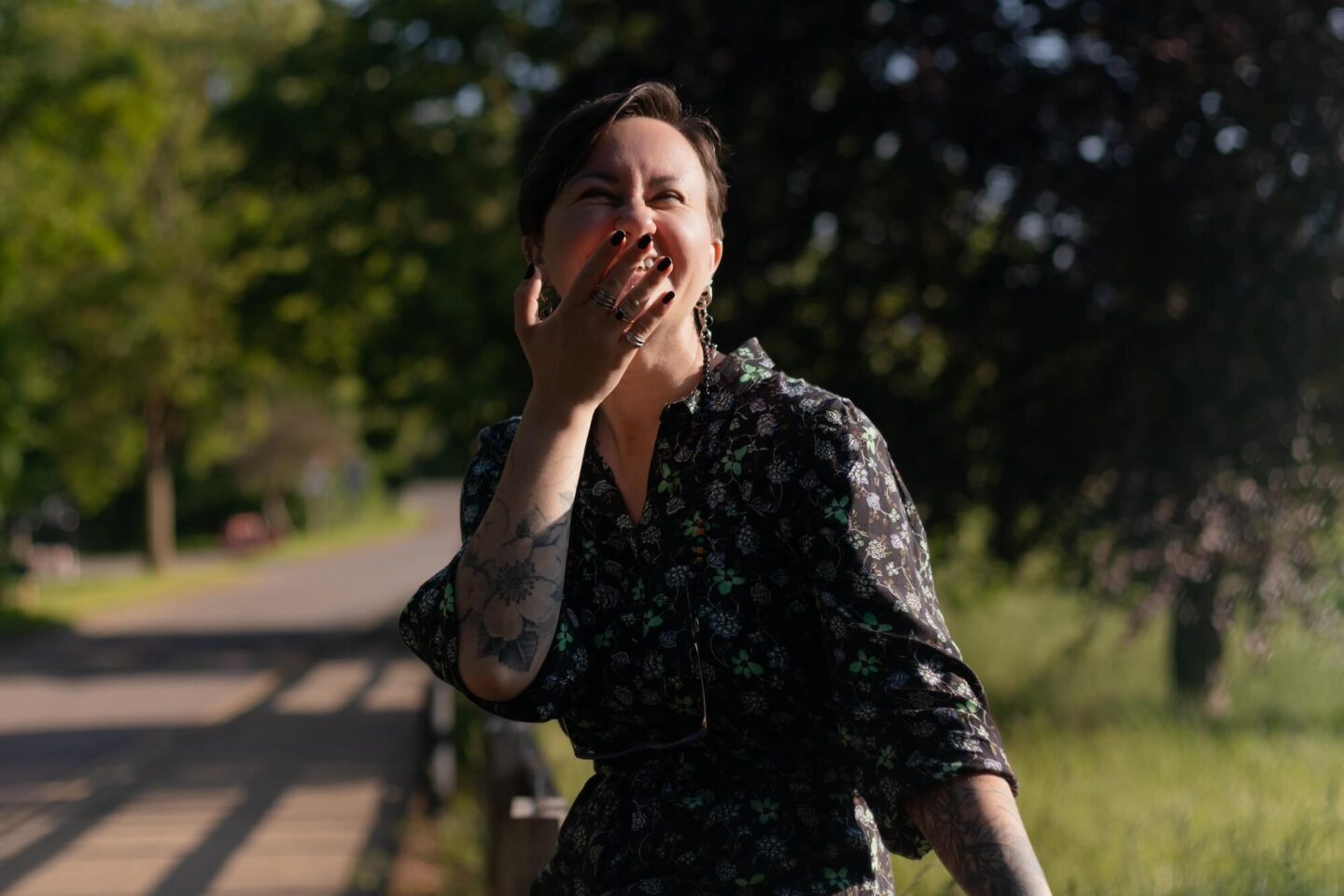
Language is the house of being. This phrase from a German philosopher has been often quoted in recent years. You have quite a unique experience among Ukrainian poets, existing constantly in several languages. What is your relationship with language, how do you maintain its fullness? Do you have any fear of losing the nerve of modern language?
I am often asked, especially abroad, if I write poems in English. I reply that out of curiosity, I experimented once or twice, but never felt it as a genuine act of creating poetry. In English, I describe the creation of poetry with the words “do poetry”—”to create” or “to act” poetry, not just produce it. So, in my case, I cannot “create poetry” in another language.
I perceive my poetry in English more as a game, a play, an intellectual exercise. But when I write in my own language—Ukrainian—I truly know that I am “creating poetry”; I act it with my whole body, with all of myself. Similarly, when I read my texts in translation: poetry, at that moment, is not fully “created” or “acted.” Only when reading texts in the original do I feel that the poetry has completely taken place. This isn’t a universal rule, as there are wonderful bilingual poets, but for me, it works this way.
I have an old friend, a professional actor, who often half-jokingly scolded me for reciting my poems “incorrectly.” But for me, the closest mode of vocalizing poetry in the presence of others is not a “proper” theatrical recital. I need to inhabit each text, to realize and substantiate it in real time. I do this both when I write and when I recite. One of my favorite poets, the aforementioned Brit Ted Hughes, was fascinated by mystical traditions, shamanism. In my second master’s research, I actually wrote about Hughes and how the poet empties his own voice so that it can be inhabited by voices from other worlds.
The poet becomes an instrument of action, just as the shaman becomes a ladder between worlds, through which meanings move.
Language (in my case, specifically the Ukrainian language) enables my action, my poetry, my existence as a poet. I make myself empty, and then language—the possibility of speaking—fills me, and I sing like a flute made from Pascal’s thinking reed. But who plays the flute?
Do you ever find yourself lacking space of the Ukrainian language? How do you fill that space?
I do mainly work in English, read a lot in English, and sometimes in other languages in addition to Ukrainian. However, strangely enough, I don’t feel a lack of Ukrainian (although I often long for it—especially when I simply hear it on the streets, in cafes, or in the metro). I have my family, with whom I communicate in Ukrainian, friends and colleagues, my translators from various corners of the world, a significant amount of work communication in the literary field, and materials for the university courses I teach—therefore, there is constant inspiration and ongoing exchange. Although, of course, there is also the effect of language alienation that comes from living in other linguistic environments. However, instead of leading to a loss of my native language, this alienation, in my case, allows me to see more clearly its small twists and cracks, knots and roughness—essentially, the body of the language, its texture, which I might not have noticed before and which can greatly benefit a poet.
Already during the time of the great war, in one of the interviews, you mentioned that reading poetry is difficult for you right now. Do you read a lot these days?
Reading keeps me afloat. I’m tossed around on this turbulent water, but for balance, I read. I even set challenges for myself (not without the help of Goodreads).
What reading goals do you set?
This year I completed my “norm” of thirty books—I’ll probably read a few more in the coming months. Not so many, but that’s not the point. The main thing is that it’s a rhythm, an organized process, structure. In times of tension, I find it important to maintain rhythms that persist when others are interrupted.
What have you been reading lately, and which texts resonate with you?
At the beginning of the year, I read a lot of William Faulkner. I felt good in his rich, polyphonic writing. I primarily read his texts about the deep American South, which are saturated with history, understood through the lives of individual people (yes, that private aspect within the general). Faulkner writes about the unconsidered living out of historical events; his characters live in history, but this history is present for them only at the level of individual experiences, often narratives. This is very important to me.
In the novel “Absalom, Absalom!” by Faulkner, I encountered a powerful image of the voice as a ghost, described in just a few words. Ghosts are supposed to inhabit houses and scare people from there, but this Faulknerian ghost-voice inhabits the body of a living person—it speaks from within as if from its home; it bears witness. If we think of poets as these houses with ghosts, there are likely many voices living in us—not just our own.
I think about this in the context of my family, where, except for my great-grandfather, the rest of my ancestors were illiterate and could not document their stories. As for History with a capital letter, they did not create it. It swept and spun them around like twigs in a whirlpool. When I was writing stoneorchardwood I thought a lot about how I can allow their voices to exist within my voice. So that it isn’t me speaking for them, but rather the sound of their voices. Again, the flute made from cane.

Who do you address in your poetry, who is your interlocutor?
I often write in the first person. And my “I” in the texts is mostly really me, not a lyrical character. Moreover, my writing is always a speaking to someone, not just into the void. So who am I speaking to? It’s not quite my readers, nor my audience at events. Rather, it’s a conversation with the Other—perhaps even the most impersonal Other: a return of words to where they came from.
When I lived in China, I often visited Buddhist and Taoist temples, even though I don’t consider myself a religious person. However, my experience in these temples was undoubtedly an experience of speaking—addressing the Other. In this way, it reminds me of writing poetry. Such speaking to the Presence, transcending one’s own subjectivity—for me, this is one of the most incredible capabilities of a human being.
Another thought comes to mind. Perhaps I, like Marsyas once did, have dug a little hole to whisper my secrets to the earth. The only difference is that, unlike Marsyas, I am aware that the reeds that grow from this earth will reveal all my secrets. I hope this awareness will save me from the potential fatal consequences of speaking certain words.
Your new book is called end songs. What does that mean—final, concluding, or last but one?
All these dimensions are present in the book. I don’t typically like to play games with my readers, although perhaps not all my decisions regarding the titles of my collections are transparent. For instance, I was often asked about the titles of my first three books: Ran, Os, Az. I compared those titles to musical tonalities that outline the sound of the entire work. The word “Ran,” for example, represents the tonality of the collection Ran; for me, this book sounds exactly like that. Following that, stoneorchardwood with its amalgamated title signifies a space of mutual growth: of people and landscapes, different voices, shifting and enduring.
End Songs is also not a mystery for readers. On one hand, this book indeed contains a lot of finiteness, fragility, and fluidity. Seen through this lens, these poems (“songs”) are written (“sung”) truly at the end of the familiar world—at a breaking (or severing) point marked by war. And a song at such a juncture is very appropriate, as this lost world also needs to be mourned and released in order to move forward and remain whole in this “beyond.”
In this second sense, “end” songs also remind us of the finiteness and the conquerable nature of grief. They speak to what lies beyond it and that it is possible to transcend it. Mourning or lamenting has great ritual significance in traditional folk customs for a reason. If we do not mourn what we have lost and do not recognize how this loss has reshaped us, we will be unable to exit the space of loss, remaining completely defined by it. Thus, end songs are also about emerging from the darkness of loss into the light.
Translation — Anastasiia Fegir
§§§
[The translation of this publication was compiled with the support of the European Union and the International Renaissance Foundation within the framework “European Renaissance of Ukraine” project. Its content is the exclusive responsibility of the authors and does not necessarily reflect the views of the European Union and the International Renaissance Foundation]


